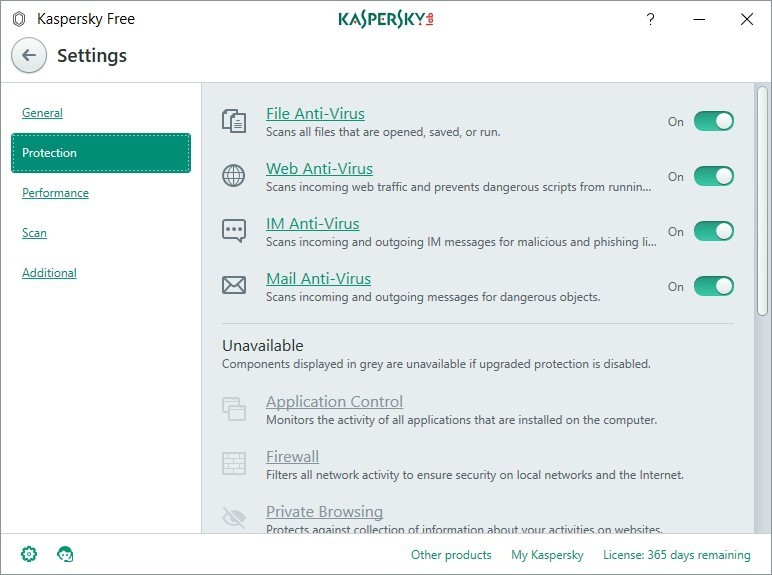When you think of the best software security, at the top of your list should be Kaspersky. It has proven to be worth its salt over the years by consistently coming highly ranked by numerous third party independent reviews. So much so that last year, the AV-Comparatives created a new ‘Outstanding Products’ category for Kaspersky; well and Bitdefender.
However, having Kaspersky secure your system does not come cheaply. The vendor charges top dollar for top-notch security. That has always been the case until last Tuesday when the company made a shocking revelation that it will be offering some of its top-notch security in a free version of Kaspersky antivirus.
The Kaspersky Free version has limited features, but enough to beat the level of security you get from any typical free antivirus in the market. Kaspersky Free offers you free antivirus protection for files, emails, and the web. In addition to the much-needed features like automatic updates and quarantine for infected/flagged files. As Eugene Kaspersky puts it, Kaspersky Free offers you “the indispensable basics that no one on the planet should do without.”
So Kaspersky Free! What’s in it for the Company?
Well, as you know Microsoft (the dominant player in desktop computing space) already offers antivirus free and come preinstalled with Windows 10. Kaspersky has been accusing Microsoft of abusing its dominance with Windows OS in the market to give its antivirus undue advantage over other antiviruses in the market.
The fact that Microsoft’s Windows Defender antivirus is available for free goes a long way in winning over users. At the same time, Microsoft dissuades users from purchasing Kaspersky (and other security software vendors) security software as they are already secured by default and for free.
Obviously, that is bad for business for Kaspersky and to make matters worse, Microsoft is being aggressive in marketing its Windows Defender over other antiviruses. Microsoft has been accused of disabling Kaspersky antivirus when the user has yet to renew their subscriptions and automatically enable Windows Defender. Something that makes the user complacent to renew their Kaspersky subscription.
Perhaps by releasing a free version of the software with limited features, Kaspersky will overcome this anti-competition behavior by Microsoft.
With Kaspersky Free, means more data/feedback to the company’s Machine Learning
By releasing a free stripped down version of Kaspersky, the company will have its security software running on many devices across the globe. That means a lot of feedback information for the company to be fed into its machine learning engines; and the more the data, the better the research and development to improve their services.
Premium Kaspersky antivirus features
Kaspersky has stripped down the Kaspersky Free to include protection for files, emails, and the web. With additional features like automatic updates and quarantine for suspicious files. However, the premium Kaspersky antivirus gives users additional features including, VPN support, parental controls, and online payment protection.
Kaspersky is allegedly working with the Russian government spies
As Kaspersky seeks to popularize its freemium version, there is a dark shadow cast around the company. Accusations are being leveled against the company has a secret close working relationship with the Russian chief intelligence agency, the FSB.
Bloomberg published a report saying Kaspersky “has maintained a much closer working relationship with Russian’s main intelligence agency, the FSB than it has publicly admitted.” Though Kaspersky has come out to deny these accusations; yet the Trump administration has moved to block it from its lists of government-approved vendors.
The CEO, Eugene Kaspersky, has addressed these concerns when announcing Kaspersky Free assuring, “the same protection without compromise; we detect any cyber threat regardless of its origin or intention – even if certain folks don’t like it.”
To download Kaspersky Free, click here. Please note the free version has is being rolled out in waves. The U.S., Canada, and most of Asia Pacific countries are on the first ring of recipients. The rest of the world might just have to wait a little longer to get this top-notch free antivirus.



